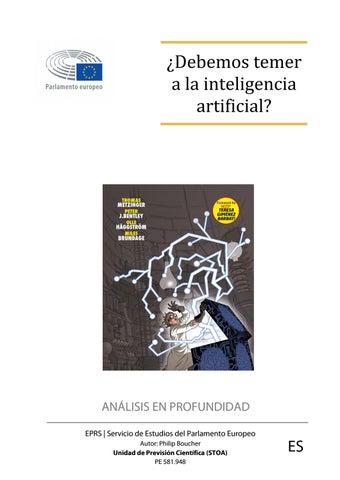Should we really fear artificial intelligence?
According to the British physicist Stephen Hawking – in the future – “machines will make humans redundant”. Other scientists such as the Swiss anthropologist Daniela Cerqui and the German Yvonne Hofstetter, a critic of the industrial and commercial handling of our personal data, had already warned in the same vein that with the help of artificial intelligence, machines will be able to develop – autonomously – strategies to replace humans and take away the power of decision. Are there reasons to worry?
Reinhard Karger, spokesman for the German Research Center for Artificial Intelligence and President of the German Association for Knowledge and Information: “Machines have always served or harmed humans. The dangers come from its misuse: a simple toaster can delight us or it can cause a fire if we mishandle it. The fears expressed by Hawkings and other scientists are more fiction than reality in a hypothetical future."
“Machines have no will”
Apart from the probable contradiction of Hawking who, due to a neurodegenerative disease, can only communicate, thanks to the technological development of new software and machines, but who, at the same time, warns about an alleged supremacy of intelligent systems. How real is it that this happens?
“No matter how autonomous they act, machines do not have a conscience, they do not have a will. And, for this very reason, they cannot have the will to assume power. The machines cannot be a comparable risk as that emanating from an authoritarian regime or a totalitarian system, for example. A machine can only mean a risk at the time of a technical failure that can lead to a catastrophe, such as a plane or railway accident,” says Karger.

Will humans have to wage war against intelligent systems or machines for personal freedom or even the rule of law? “There is no danger from artificial intelligence that machines will be built that secretly ally and devise a plan to replace humans or perhaps exterminate them. That belongs in the realm of science fiction,” adds Karger.
Smarthome and Engine Assisted Living
If machines don't have a "will", can they have a conscience? Reinhard Karger affirms that “the machines will not acquire a consciousness comparable to that of humans. The machines have indications of behavior, a certain framework of action, but never a space in which they can decide for themselves. It is true that machines have the freedom that we allow them and whose functions – in the meantime – we need to ensure our well-being. Examples of this are the smarthome or Engine Assisted Living systems”.
In societies with a growing number of elderly people or in remote places, “Engine Assisted Living” technology develops systems that allow, among other things, remote medical treatment or monitoring. With "smarthome", on the other hand, almost all the devices in a house can be controlled remotely, in addition to controlling everything from heating to opening windows and energy consumption. An automation that will allow elderly or disabled people to live in their homes and not in nursing homes.
Without a doubt, an achievement, but the computer expert Yvonne Hofstetter speaks in her book "They know everything" of a "trend towards totalitarianism of data systems" that collect millions of information about almost all our daily activities. Algorithms that, according to Hofstetter, are automatically analyzed by computers that will then issue forecasts and decisions about our behavior that will end up controlling our lives.
Throughout the history of humanity, man has always looked at technological development with fascination or skepticism, something that for Reinhard Karger, spokesman for the German Research Center for Artificial Intelligence, is something normal and invites to express and maintain the debate on the society of the future that we ourselves want.
A dialogue that is more important today than ever “because never before have humans seen such technological progress, so quickly and on such a large scale in the entire history of mankind. That is why it is important that we all express our opinion about the future we want”.
(Source: Deutsche Welle)
